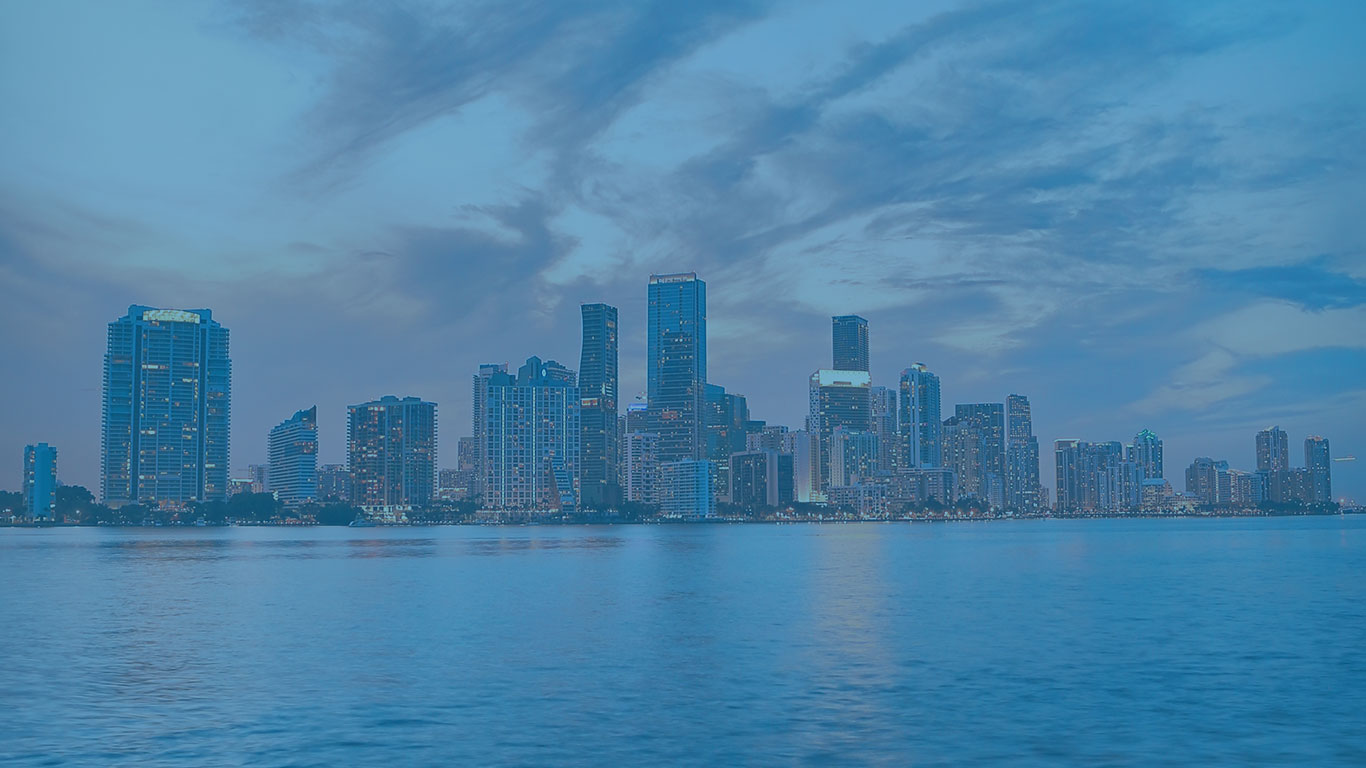

Addiction - or substance use disorder - is a condition defined by the uncontrollable urge to take a drug, despite its negative impact on many parts of the person's life. Drug abuse can start from recreational use or through misusing prescription drugs. The disorder can hold a powerful grip over the brain, changing the physical and chemical makeup of the decision-making and reward centers of the brain. Dopamine is the key driving force behind this behavior, with the powerful surges of the neurotransmitter released when abusing drugs or alcohol being sought after over and over.
Although substance use disorders are difficult to overcome it is by no means impossible. With the right addiction treatment, millions of people have been able to kick their substance abuse problem to the curb and successfully manage their disease symptoms.
The sprawling metropolis that is Miami City is home to a population of around 45,000 people. It is located in Miami-Dade county which contains the largest population in the state of Florida, being home to over 2,500,000 people. The placement of Miami on the southeastern coast makes it a busy and bustling port city of South Florida, meaning it is a hot spot for drug trafficking and therefore substance abuse.
Out of all the substances, Miami-Dade county residents have the highest prevalence of alcohol abuse in the state. A report from Miami Coalition then explains there are around 71,000 underage drinkers in this region. The Florida Drug Control Update reported that more than eight percent of the state's population used drugs in the past month. The most commonly abused drugs were prescription opioids and are therefore tied to the most abuse and drug-related deaths in the area.
Other common types of drugs abused in this region include:
According to the Substance Abuse and Mental Health Services Administration (SAMHSA), around 6.3% (1.1 million) of the population in the whole of Florida have a substance use disorder. Despite this number being lower than the national average (7.4%) Florida ranks second in the nation for the number of overdose deaths behind California according to the Centers for Disease Control and Prevention (CDC).
Over one million people have a drug problem in the state of Florida, although SAMHSA data from 2019 shows that only 57,335 people were enrolled in substance abuse treatment. This is a decrease from 2015 when 63,287 people were enrolled. Out of the individuals in treatment:
Research from the National Institute on Drug Abuse (NIDA) shows that relapse rates for substance use disorders while in recovery are 40-60%, similar to those of other chronic conditions including hypertension and diabetes. Plus, after one year after completing treatment, around 25% of addicted individuals reduce their substance intake. Unfortunately, relapse is part of the disease and these rates are not an indicator of failed treatment.
In the long run, however, addiction statistics start to look brighter. One study concluded that most Americans do not just eventually quit their substance abuse, but also thrive. The research showed that over 60% of people who experience addiction eventually recover long-term, going against our cultural perception of the disease.
Florida is the recovery capital of the US, with the state housing a countless number of top-quality treatment centers. Its serene, beautiful scenery and all-year-round favorable climate make it a great place to recoup.
Miami-Dade is such a hotspot for recovery due to the vast number of sober activities that can be carried out. This is important when recovering from addiction to replace the time that was previously spent abusing drugs. The city being an epicenter of entertainment, recreation, and unique culture means that addiction recovery in South Florida allows you to lead a fulfilling and rich life free from drugs.
Some of these activities include:
The cost of substance abuse treatment in Miami can only be defined on a case-to-case basis, with some being free and others costing thousands of dollars per day. No matter what your budget may be, you will be able to access treatment services for your addiction.
Depending on your insurance provider, they may also pay some of the cost of addiction treatment. The best way to figure out how much you will have to provide out of pocket is by directly contacting the treatment program you want to be a part of and your insurance provider.
The cost of addiction treatment in Miami-Dade county depends on:
Although undergoing drug or alcohol addiction treatment can seem like a lot of money to spend, there is no price you can put on saving your life and getting it back on track. Many alcohol drug users spend thousands per year on their addiction, plus, legal issues that can come up can cost thousands more.
Residential treatment services allow recovering people to place themselves into a fresh environment, away from where their substance-taking behavior took place and any triggers. The structured and organized nature of inpatient programs provides a space for healthier habits to be formed for Miami residents. Staff will help bring a focus on healthy eating, exercise, and allow a sense of routine to be built.
In these treatment services, a range of techniques can be employed to take a holistic approach to recovery that should be personalized for each client. Some of these approaches include:
Due to outside commitments - such as work or caring for a family member - it is not always possible to attend an inpatient program. Outpatient treatment services provide a similar approach to substance abuse, though allowing your normal life to resume as before. Time spent in an outpatient facility can range from three to seven days each week depending on the intensity of the course that needs to be undertaken. Many people also prefer outpatient treatment services as they are usually cheaper.
When a new inpatient comes into a treatment facility, the first step of substance abuse treatment should be an intake session. Here, the person will be screened and assessed for any physical and psychological health concerns. This allows the center to lay out a treatment plan for the person's exact needs and conditions they are displaying.
When an individual repeatedly abuses a substance their brain and body adapt to it being in their system. If intake of that drug is suddenly reduced or stopped completely, withdrawal symptoms can take shape. Each substance has its own collection of symptoms, some of which include:
Due to the potential intensity of withdrawal syndrome and the increased risk of a drug overdose during this period, it is advised that the detox process is undergone by medical experts. Drug detox programs provide around-the-clock care for physical and mental distress that an individual may be experiencing, prescribing medication, and checking up on their vitals.
Detoxification from a drug is the first difficult step in overcoming addiction, however, this is just the first step in the recovery process. Attending therapy sessions hugely increases the chance of staying sober long-term as it provides individuals with the tools to stay resilient. Both individual and group counseling are highly advised during this period, with both kinds providing different
Cognitive behavioral therapy (CBT) is the most commonly utilized therapeutic technique in substance abuse treatment. CBT allows individuals to:
As addiction is referred to as a "family disease" family therapy is also an extremely helpful tool in overcoming the disorder. This allows for the family members to be educated about what their loved one is going through, allowing for more compassion and a better understanding of how to approach them. It also helps resolve any dysfunctional dynamics that may have contributed to the substance-taking behavior in the first place.
Support groups are vital for the long-term success of recovery providing a safe space to share stories and thoughts about substance abuse. This space can provide motivation to overcome a disorder and eventually inspire other people. As humans are social creatures, meeting people and socializing are also important parts of recovery which support groups provide.
The team at Vita Recovery understands how difficult overcoming a drug addiction can be, though undergoing treatment in the serene, beautiful, and cultural town of Miami with our expert staff makes this time a little easier. Contact us today to find out more about our treatment services and how we can help get your life back on track.
